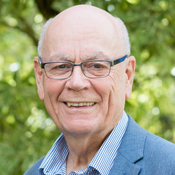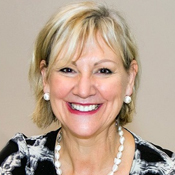Prime Minister Scott Morrison has said the government would detail much of its response to the Royal Commission into Aged Care Quality and Safety in its May federal budget, and with just under a week to its release, Aged Care Insite has asked leading voices in the sector what one message they want government to hear.
Alison Verhoeven, chief executive of the Australian Healthcare & Hospitals Association
Every older person should be able to live well, with dignity and independence, as part of their community and in a place of their choosing. Regrettably, as the Royal Commission into Aged Care Quality and Safety has shown, we are far from this perfectly reasonable ideal in Australia today. The May 2021 Commonwealth budget is an opportunity to start the shift from a market-oriented approach to aged care to the human rights approach advocated by the Royal Commission. The Australian Government needs to look beyond simply adding more money and focus on systemic reform including in the governance (and clinical governance) of aged care services. The safety and wellbeing of older Australians depends on this; we cannot perpetuate 20 years of policy failure any longer.
Lori-Anne Sharp, assistant federal secretary at the Australian Nursing and Midwifery Federation
Aged care must be a priority in the upcoming 2021 Budget with the introduction of urgently-needed laws that mandate safe staff ratios in private aged care. Chronic understaffing has been the key factor unpinning the dreadful crisis we continue to witness in aged care. Every day the Morrison Government delays taking action to address chronic understaffing is another day that residents will continue to suffer and be denied basic human rights. And for the vital workforce who care for them, the nurses and carers (who are predominantly female) will continue to be overworked and undervalued.
Australians deserve so much better. Change is urgent.
Mike Rungie, member of boards and committees including ACFA, Every Age Counts, Global Centre for Modern Ageing and GAP Productive Ageing Committee.
Aged care has two problems that Government is seeking to solve with this budget. One is it is seriously underfunded by global standards, the other is that it has endemic abuse and neglect, which providers have low awareness of. Chucking money at aged care will solve the first, but not the second.
The problem is we are all schooled to only imagine diminished lives for older people, so that by the time we become frail we accept care that really diminishes lives. And when this happens good people get paid to do bad things. Chucking more money at them sadly doesn’t change them.
In this budget, we need government to simultaneously fund a community wide conversation/accumulation of new knowledge so we can start to imagine what a maximised older life would look like and therefore what a frail good life looks like. Not just focus groups, but with all the attributes of a modern conversation, starting with a gloom-free Intergenerational Report later this year. Government should lay down as a requirement of additional aged care funding that all providers demonstrate that they offer aged care that is listening to and responding to this conversation.
In constructing this budget, Government’s greatest lever for change is that the current system is not sustainable. Making it sustainable without an aged care mindset change removes the lever and builds a sustainable aged care that diminishes people lives, and in the process the lives of the rest of us. And that will be near impossible to change.
Sean Rooney, chief executive of Leading Age Services Australia
Our sector and our nation looks to the Australian Government to commit to a total overhaul of the aged care system to ensure older Australians are afforded the dignity, respect and support they need and deserve. This means ensuring older Australians have choice and access to high quality care and support and that aged care providers are enabled and resourced to deliver this with quality, safety and compassion – always.
The new system will be underpinned by better system governance, appropriate standards and regulation, more transparency and accountability, more staff who are better paid and trained, and a greater focus on research and innovation. This will result in a system that shifts its focus from compliance to excellence. Realising this starts with the Budget, as we know our current spending is half of that spent by comparable countries, and with independent reports suggesting additional funding of between $7 billion to $10 billion per year is needed, what is required is a sustainable funding model.
Now is the time to make that once in a generation commitment to give older Australians the care they deserve and to ensure this is provided by age services that are high performing, respected and sustainable.
Maree McCabe, chief executive of Dementia Australia
The Royal Commission’s Final Report demonstrates that the commissioners have listened to people impacted by dementia. The time for the Australian Government to act is now by embracing and funding Dementia Australia’s Roadmap for Quality Dementia Care urgently and in its entirety. This is a once in a generation opportunity to commit to the funding and policy settings we need to deliver quality dementia care and achieve the systemic change required across the industry – an opportunity we cannot afford to miss. If we get care right for people living with dementia, we get it right for everyone.
Do you have an idea for a story?Email [email protected]
 Aged Care Insite Australia's number one aged care news source
Aged Care Insite Australia's number one aged care news source







Thank you Dallas and Aged Care Insights for this summary article. I wait with trepidation for what will be announced on the budget night next Tuesday. I have limited hope after the government’s policy failures over 20 years and after working with seniors and in aged care for 30 years.